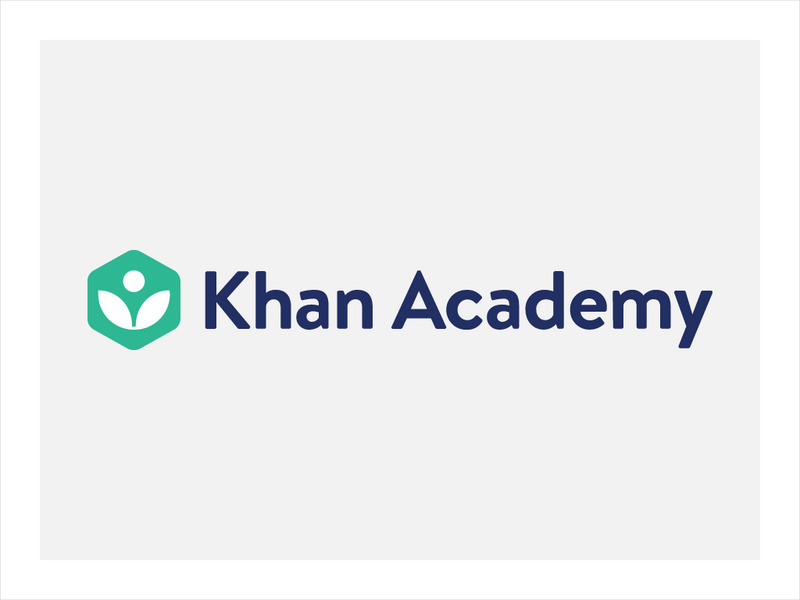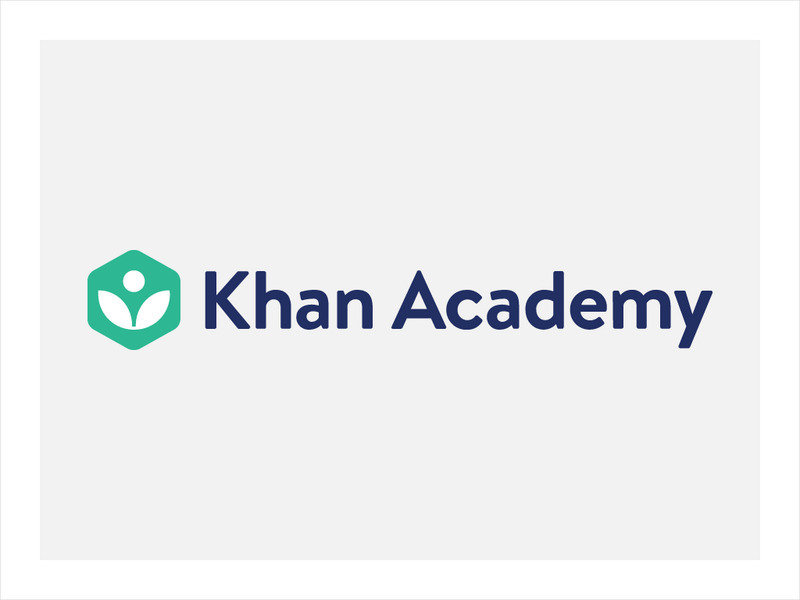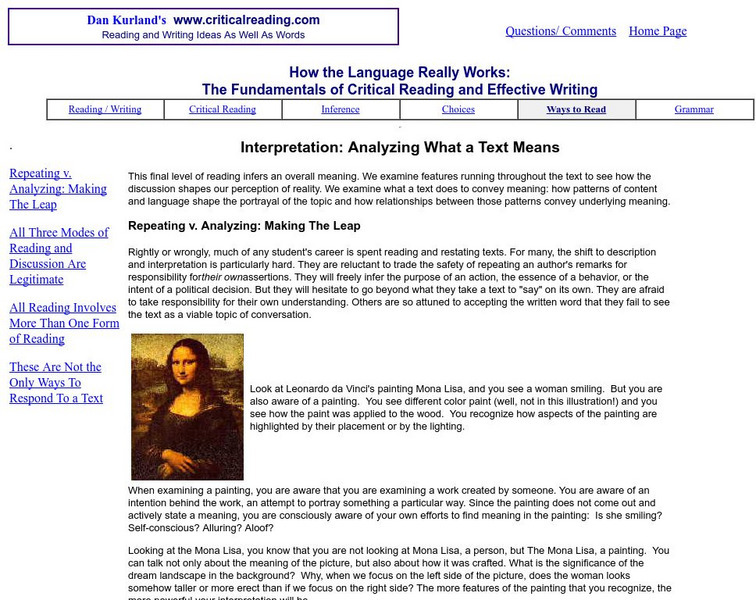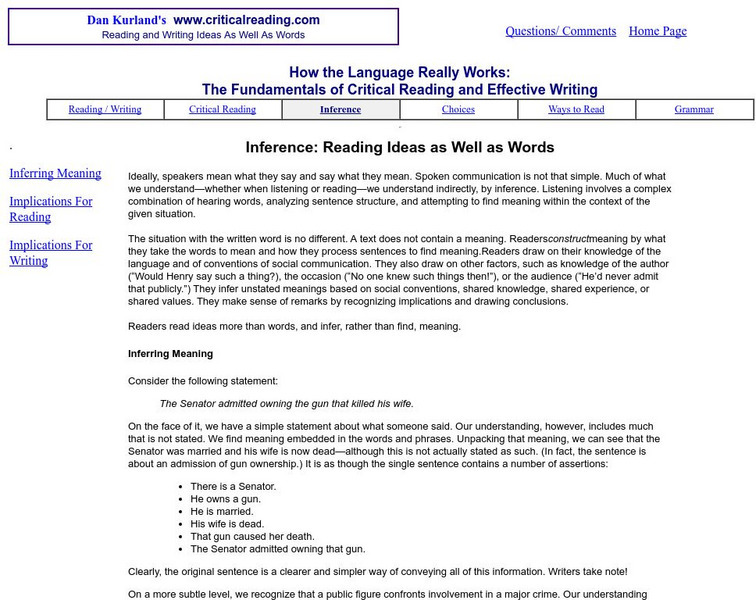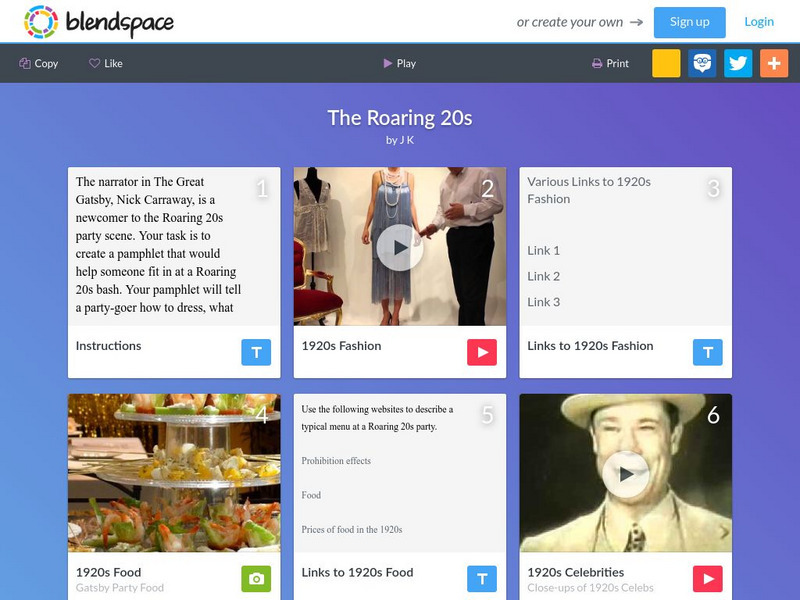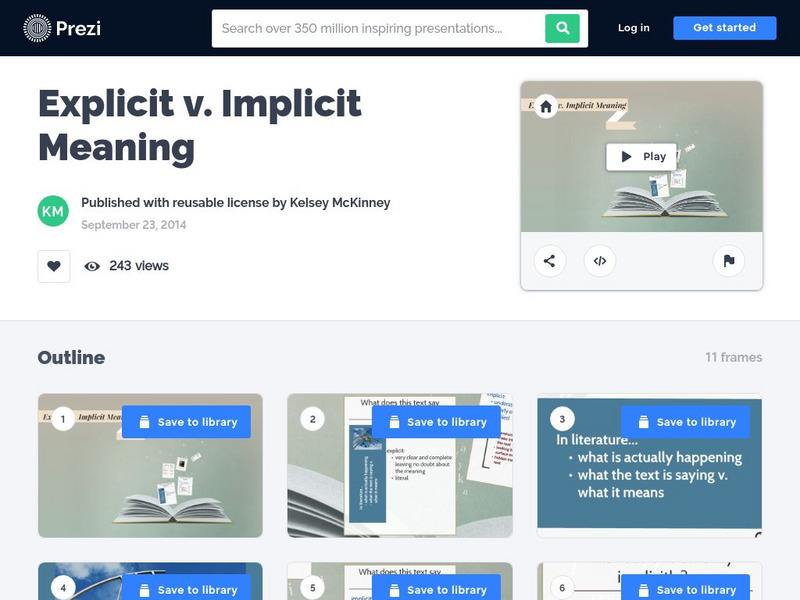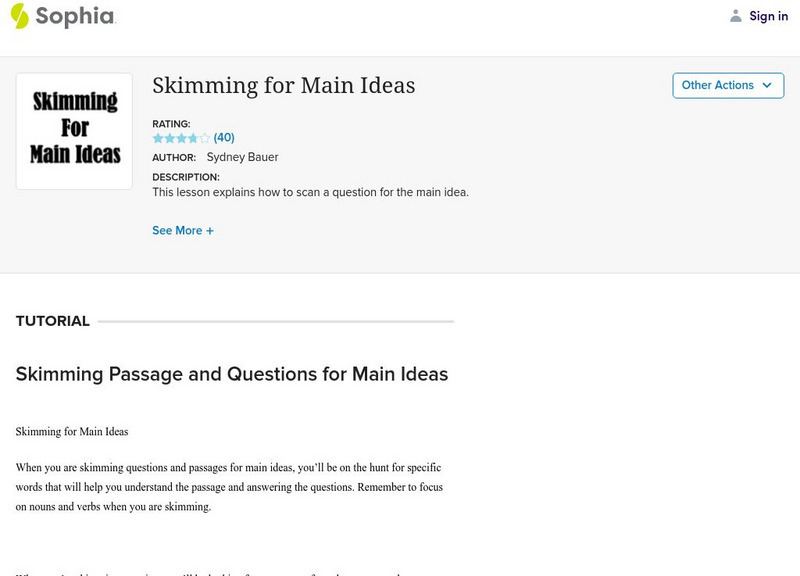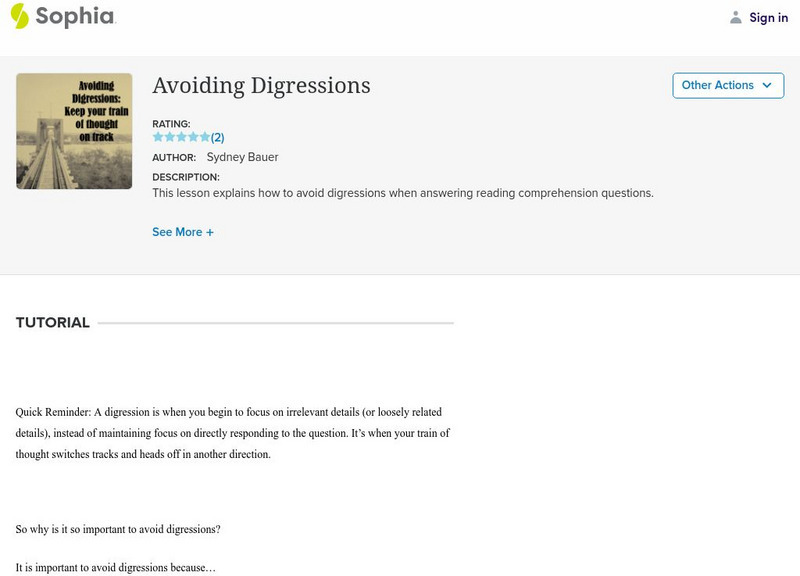Khan Academy
Khan Academy: Necessary Assumptions Learn More
Necessary assumption questions ask you to determine what has to be true - but was never explicitly stated - in order for an argument to work. Stated differently, if a necessary assumption were discovered to be false, the argument would...
Khan Academy
Khan Academy: Strongly Supported Inferences Quick Guide
A quick guide to approaching questions that ask you to identify something that is "strongly supported." On questions that ask you to find the choice that is most strongly supported by a stimulus, the answer does not have to be...
Khan Academy
Khan Academy: Strongly Supported Inferences Learn More
How do we recognize what is "strongly supported?" Some questions on the logical reasoning section of the LSAT ask what additional information is supported by a stimulus. These are similar to questions that ask you to identify the...
Khan Academy
Khan Academy: Inferences About Information Quick Guide
Some questions in the Reading Comprehension section will ask you to make an inference about information in the passage. The answer may not be explicitly stated in the passage, but it will be supported by the content of the passage. In...
Khan Academy
Khan Academy: The Sat Reading Test: Information and Ideas
The Information and Ideas category of the SAT Reading Test includes questions that focus on what the passage says (directly or indirectly). To interpret the author's message, you'll need to consider both what's stated and what's implied...
Other
Prezi: Implicit and Explicit Questions
This Prezi provides Implicit and Explicit questions and practice activities.
Joe Landsberger
Study Guides & Strategies: How to Read an Essay
Use this guide when reading an expository text or any type of essay, as it provides important questions you should ask yourself while you read. You can access this page in multiple languages from the English homepage.
Other
How the Language Really Works: Restatement
Choosing when to read for simple comprehension is the focus of this brief article.
Other
Critical Reading: How the Language Really Works: Interpretation
In this brief article, the author considers the ways that readers interpret text. An interesting comparison between reading and viewing a painting is worth a look.
Other
Gallaudet University: Reading and Mapping
Learn strategies for reading and mapping. This link offers important tips on improving test taking skills. Includes a PDF (requires Adobe Reader).
Other
Learning Enrichment:reading Skills in the Social Studies
Discussion of the critical reading skills needed in Social Studies, although the skills discussed can apply to a variety of areas. This is part of a larger site containing numerous lesson plans for Social Studies, and this page is really...
Other
Daniel J. Kurland: Critical Reading: Inference: Reading Ideas as Well as Words
This college instructor offers his insights into critical reading and how to develop skills to interpret as well as comprehend the written word. RL.9-10.1, RL.11-12.1, RI.9-10.1 textual evidence and inference.
TES Global
Blendspace: The Roaring 20's
A learning module with thirteen links to texts, images, and videos, with information about life during the 1920's. RI.9-10.7 different mediums
Other
Prezi: Explicit v. Implicit Meaning
Slideshow investigates how to determine what the text is saying v. what it means.
Sophia Learning
Sophia: Skimming for Main Ideas
This lesson explains how to scan a question for the main idea.
Sophia Learning
Sophia: Avoiding Digressions
This lesson explains how to avoid digressions when answering reading comprehension questions.
Other
Laflemm.com: Reading Resources: Inference
This page has reading tips and exercises that explain inferences. There is an answer key for students to check their work. RL.9-10.1, RL.11-12.1, RI.9-10.1 & RL.11-12.1 textual evidence and inferences
Other
Critical Reading: Three Ways to Read and Discuss Texts
Designed to help students think about their reading and writing skills, this page offers three different ways to interpret and discuss texts.


